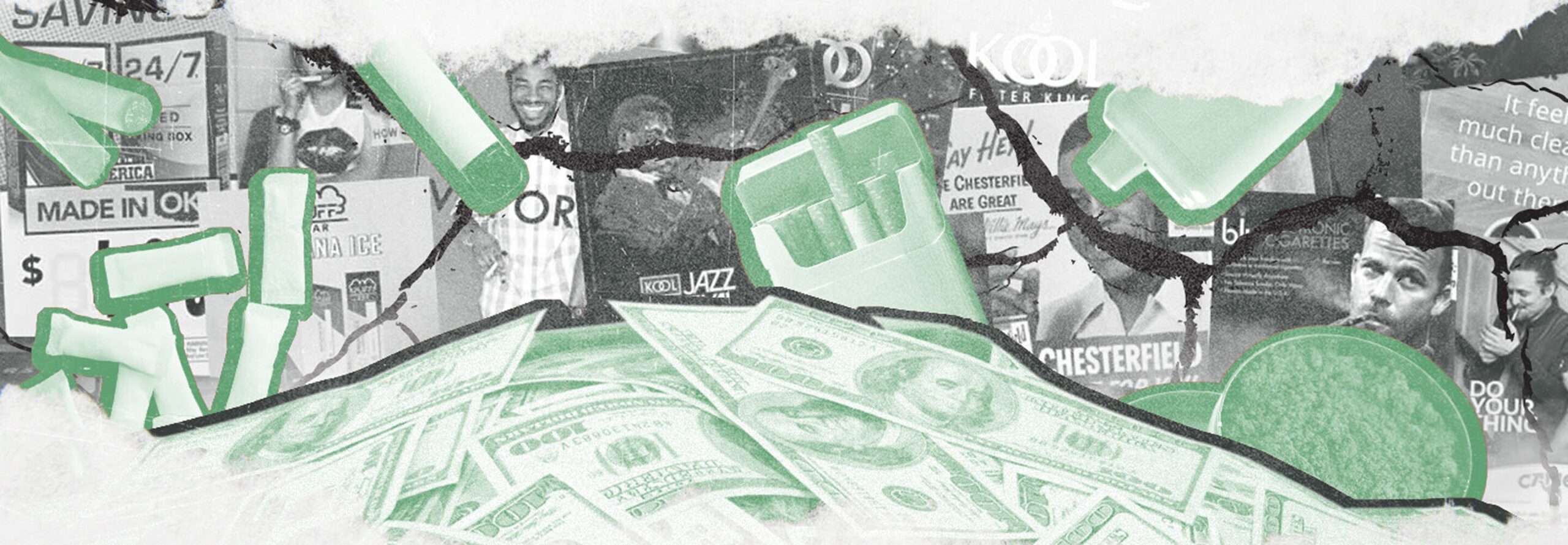
Industry Tactics
Big Tobacco’s Playbook of Deception
Decades of manipulation, lies and schemes.
The tobacco industry has a long history of intentionally lying to attract new users. From glamorizing smoking in advertising to creating youth-centric flavors and packaging, these companies have consistently made false claims and prioritized profits over public health.
Products
Nicotine’s Many Shapes and Sizes
New devices and products, same addiction.
From traditional cigarettes to “smart” vapes, the tobacco industry is always innovating to make nicotine more appealing and accessible. Their products come in various forms and flavors designed to attract new users while maintaining the addictive properties that keep customers dependent.
Targeting Tactics
How Tobacco Companies Get New Customers
They’re always looking for replacements.
Big Tobacco will do whatever it takes to addict more customers and make a profit. No one is off limits, no matter their age, race, gender or socioeconomic class. Learn how to spot the deception to protect yourself, and your loved ones, from the many complications of tobacco.
Corrective Statements
Big Tobacco Forced To Pay the Price
The court-ordered admission of guilt.
After decades of misleading the public, major tobacco companies were ordered by federal courts to publish “corrective statements” admitting they had deliberately deceived consumers about the health effects of smoking and secondhand smoke. These statements expose the industry’s deliberate manipulation of nicotine levels and its relentless targeting of youth.
Make a Change
The tobacco industry is always evolving and has no plans to slow down. It’s up to all of us to create meaningful, long-lasting policy change. Find ways to connect with community leaders, resources to share with loved ones and tips to fight back.